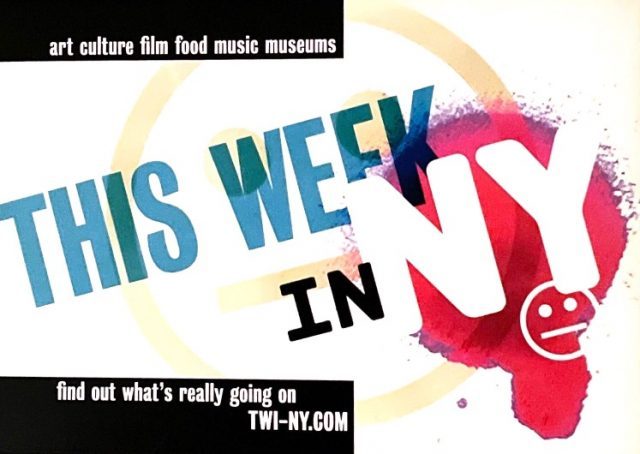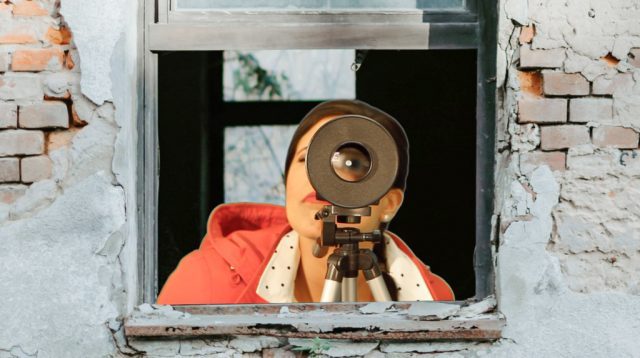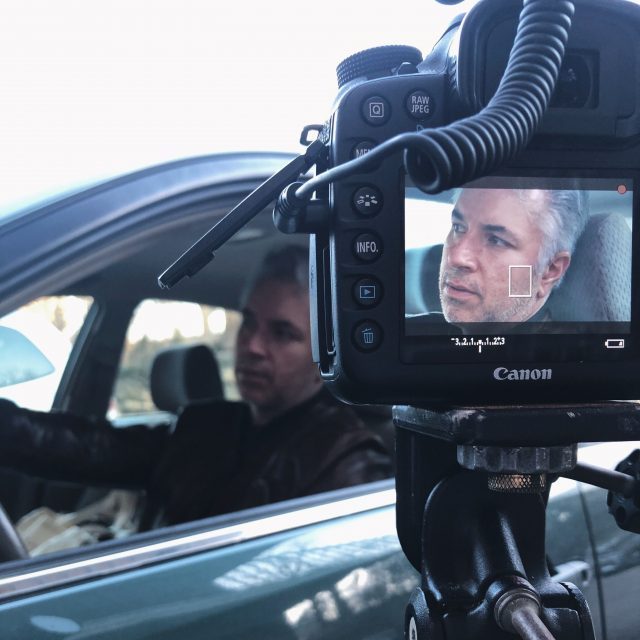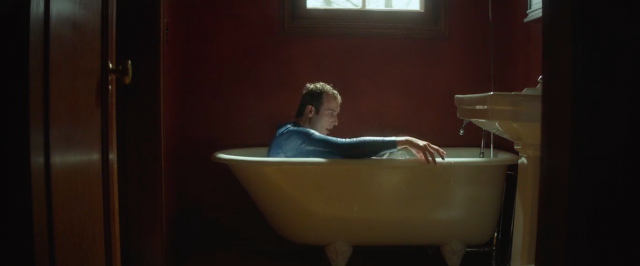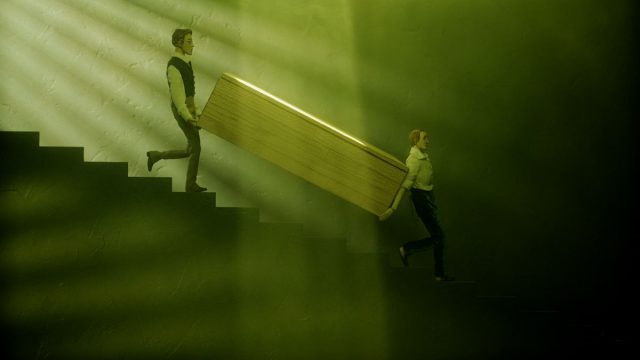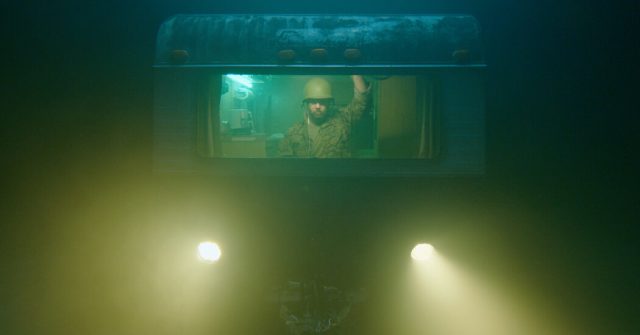
Opera Philadelphia’s Soldier Songs explores trauma, isolation, loss, and loneliness (photo courtesy Opera Philadelphia)
Opera Philadelphia
Through May 31, $10-$25 each, $25 streaming pass for four shows
www.operaphila.org
If you haven’t been following Opera Philadelphia during the pandemic lockdown, then you’re missing some of the best work of the past fourteen months. Formerly known as the Opera Company of Philadelphia, which was founded in 1975, the troupe usually performs at the Academy of Music and the Perelman Theater in the Kimmel Center. But with venues shuttered, last fall they started streaming dazzling short films that will be available for viewing through the end of May.
Their breakthrough was David T. Little’s fifty-minute Soldier Songs, which focuses on a soldier suffering from PTSD, living alone in a small, sad trailer in the middle of nowhere (actually Chester, Pennsylvania, near the 1777 Battle of Brandywine). Played by Johnathan McCullough, who directed the piece and wrote the screenplay with producer James Darrah, based on interviews with veterans from five wars, the soldier is trapped in his pained, overwhelmed mind, unable to escape the battle. His loneliness and isolation evoke what so many people have been feeling since the Covid-19 crisis began. In uniform, he crawls desperately across the grass, sings while holding a toy soldier (“Good guys, bad guys / Get to choose who will die,” he repeats), and looks at old photos and letters, leading to a harrowing conclusion. Soldier Songs is gorgeously photographed by Phil Bradshaw, and Little’s music and libretto will hit you in the gut.
Be sure to check out the extras, including a behind-the-scenes video and the interviews that were used in the film. In addition, on May 25 at noon, McCullough will be discussing the making of the work at a free online talk hosted by the Independence Seaport Museum.
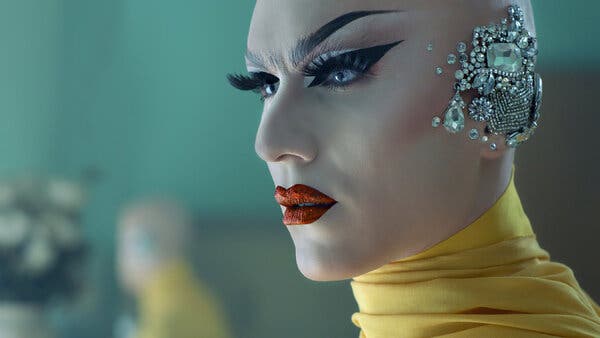
Sasha Velour is captivating in gorgeous The Island We Made (photo by Matthew Placek / OperaPhiladelphia)
The Island We Made is another gem, a ten-minute film that begins with cinematographer Matthew Schroeder scanning across an elegantly designed home before focusing on a character portrayed by gender-fluid drag queen Sasha Velour, spectacularly adorned in glittering silver jewels from head to toe, striking makeup, and a long, flowing yellow gown. (Oh, those eyebrows and lips!) With haunting music by Angélica Negrón and production and direction by Matthew Placek, the story explores the matriarchy, with Karen Asconi as the grandmother, Eva Aridjis as the mother, and Josephine Aridjis-Porter as the daughter. Eliza Bagg sings the vocals, with Bridget Kibbey on the harp. It’s a stunning work that will send chills up and down your spine.
Featuring music composed by Pulitzer Prize winner Caroline Shaw and words by writer Anne Carson, We Need to Talk is a superb complement to The Island We Made. In a ramshackle, claustrophobic space with white-brick walls, soprano Ariadne Greif, in pajamas and a robe, wearing thick red lipstick, encounters a pail of water, a shattered ceramic pitcher, a copy of a book about Walt Disney, apples, and furniture that she moves across the floor with a fury. She looks directly into the camera and sings live, “You were nude / You were intangible / You were unconvincing / You were vague,” her prerecorded voice delivering the lilting background vocals. Meanwhile, an offscreen Carson, sounding like it is coming out of an old radio, recites lines from the same poem, including “You were ghosting around as if a mystery of Hymen,” in a kind of call-and-response dialogue with Greif. Directed by Maureen Towey, the ten-minute We Need to Talk gets under your skin with its surreal, almost Buñuel-like abstract narrative that delves into the nature of isolation while not being afraid to be occasionally playful.
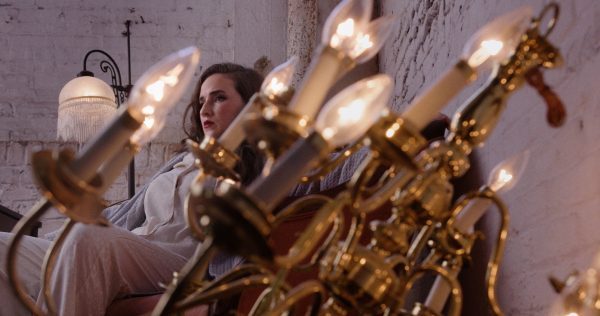
We Need to Talk is a collaboration between Caroline Shaw, Anne Carson, and Ariadne Greif (photo courtesy Opera Philadelphia)
Pianist and composer Courtney Bryan’s Blessed travels from New Orleans to New York to Philadelphia as soprano Janinah Burnett and vocalist Damian Norfleet perform a hymn, at one point whispering, “Blessed are those who are persecuted for righteousness’ sake / For theirs is the kingdom of heaven / Blessed are you when people revile you and persecute you and utter all kinds of evil against you / falsely on my account,” lines from Jesus’ Sermon on the Mount in the Christian Bible, often known as the Beatitudes. (“Beatus” is Latin for “blessed” or “happy.”) Director Tiona Nekkia McClodden includes shots of Burnett and Norfleet at lovely outdoor locations, photos of the score, a visit to a church that celebrates the good deeds done by prison reform worker and educator St. Frances Joseph-Gaudet, and snippets of the rehearsal and recording sessions that were held over Zoom with sound designer Rob Kaplowitz. Blessed was created in direct response to the events of the past fourteen months, from the presidential election to racial injustice at the hands of the police, but it is anchored by the belief that the meek will inherit the earth.
Opera Philadelphia is also streaming Tyshawn Sorey’s twenty-minute Save the Boys, in which countertenor John Holiday and pianist Grant Loehnig perform the 1887 title poem by abolitionist, writer, suffragist, teacher, public speaker, and Black women’s rights activist Frances Ellen Watkins Harper. Performed in the homey Rittenhouse Soundworks studio in Philly in which the masked Loehnig and the unmasked Holiday are socially distanced, the piece begins, “Like Dives in the deeps of Hell / I can’t break this fearful spell / Nor quench the fires I’ve madly nursed / Nor cool this dreadful raging thirst / Take back your pledge / You’ve come too late! / You can’t save me from my fate / Nor bring me back departed joys / But you can try to save the boys.” These digital commissions are only available for the next few weeks; don’t miss them.
